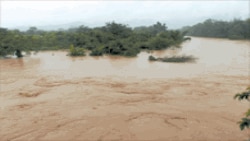The government of Laos, in partnership with the United States, recently hosted the Lower Mekong Initiative Disaster Relief Exercise and Exchange in Vientiane.
The exercise and exchange is an annual civil-military disaster preparedness and response initiative between the governments of Laos, Cambodia, Myanmar, Thailand, Vietnam, and the United States. Each year it brings together both military and civilian experts in one of the six member states.
This year’s exchange, took place over four days in September and featured presentations, problem- solving sessions, and a site visit. It also included a tabletop exercise which focused on flood response in the Lower Mekong region, with a specific emphasis on impacts to the agriculture, health and transportation infrastructure sectors.
The activities leading up to the tabletop exercise provided a great opportunity for participants to share flood-related experiences and best practices and develop plans for dealing with future events, one of the main goals of the exercise.
“Flooding can happen every year; in this workshop we all came together, different ministries and different countries, to discuss and plan the steps in responding to a flood, so we can better help our people and save lives,” said Ms. Vilavanh Xayaseng, of the Laotian government’s Department of Communicable Disease Control, Ministry of Health.
If there is flooding along the Mekong River it will likely affect more than one LMI state. Participants in the exercise and exchange now know how best to coordinate and have and understanding of how each other’s preparation and response systems work, which should lead to more efficient and effective disaster response.
“Floods, storms, and other natural disasters do not respect national borders. In this deeply connected region, cooperation to help the victims of natural disasters is essential,” said Daniel A. Clune, U.S. Ambassador to Laos.
“The United States,” he said, “is committed to working with our partners in the Lao PDR and the other countries in the Lower Mekong region to help them meet these shared challenges.”






